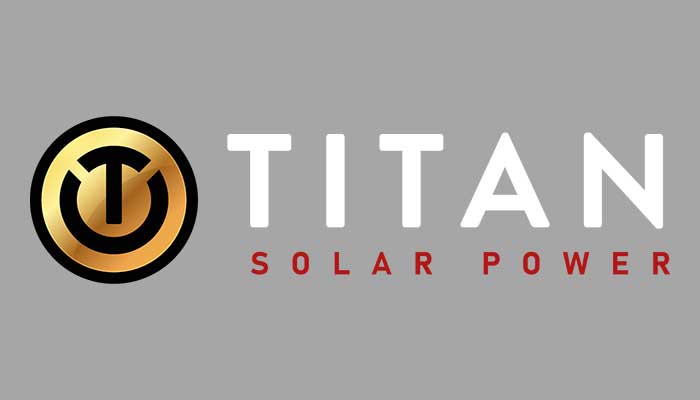
Updated April 18, 2022
Every three months, 1 in 600 households in the U.S. install solar panels. With 138 million homes in the United States, that works out to nearly a million homes per year adopting solar power. Why are all of these people making the switch?
There are many benefits of solar power, but they fall into five broad categories:
- Environmental benefits
- Lower power bills
- Increased home value
- Ease of use
- Tax savings
Let’s take a look at each of these things, and see why so many Americans are joining the solar revolution.
1. It’s a Clean, Renewable Power Source
The sun is a virtually limitless source of energy that will keep radiating light for billions of years. If you could capture all of the light we receive from the sun in one hour and convert it into electricity, you could meet the world’s power demands for a whole year. That’s an incredible amount of potential!
The beautiful thing about solar is that it produces zero carbon. Unlike fossil fuels, your home energy isn’t contributing to climate change. You also aren’t putting out other toxic emissions into the environment.
This has real implications for the planet. In New York, which is not famous for its sunshine, the average home solar system saves the equivalent of 5,000 pounds of coal per year. In areas with more sunshine and less snow, the savings can be even higher. According to the U.S. Office of Energy Efficiency & Renewable Energy, taking maximum advantage of solar power would save between 25,000 and 59,000 lives. The economic savings, meanwhile, would amount to $167 billion.
2. You’ll Save Money
The beautiful thing about sunlight is that it’s free for anyone to collect. As a homeowner – or business owner – this represents an obvious opportunity. Yes, solar panels represent a substantial upfront investment. But once they’re installed, you’re getting a free supply of power.
The financial benefits don’t end when you’ve supplied your own electricity. Through a system called net metering, you can feed excess power back into the grid. Any solar power your home doesn’t use gets sent to your electrical company, and you receive a credit.
This is important because unless you have an expensive battery backup system, you’ll still be using grid power when the sun goes down. The credits for your excess power are applied towards this energy. If you’re earning enough credits, your monthly power bill can be almost zero.
In some cases, instead of getting paid directly by your solar company, you may get your credits from a third-party aggregator. Net metering policies can be different from state to state, and from the utility company to the utility company. That said, many states require solar companies to participate in net metering.
3. Solar Panels Increase Your Home Value
Another good reason to invest in solar power is that it actually increases the value of your home. In the U.S., installing solar panels adds an average of 4.1% to a home’s value. If your home is worth $250,000, that’s an increase of $10,250!
The exact increase in value will depend both on the property itself and on the specific solar system you install. On average, the home’s value increases by $4,020 to $5,911 for every kilowatt of solar capacity.
Not only that, but when it’s time to sell, solar-powered homes sell faster than homes that are limited to grid power. The exact numbers vary, depending on your location, but the average U.S. home will sell 20% faster with a solar system installed.
No matter how you cut it, it’s clear that solar systems are a sound investment. If you plan on selling your home someday, the benefits are obvious. Even if this is your forever home, you’re adding value to pass on to your heirs.
4. Maintenance Is Easy
Home power systems have traditionally required a lot of maintenance. For example, if you have a gas or diesel generator, you need to run the motor every couple of months to keep it in good working order. This and other maintenance can add to your costs.
Solar systems, on the other hand, require relatively little maintenance. The only thing you need to do on a regular basis keeps the panels clean. Wash them every six months or so, and you’re good to go. If you’re not comfortable doing this yourself, there are cleaning companies that will do it for you for a small fee.
As for other kinds of repairs, you can rest easy. Most solar system manufacturers offer a 20- to 25-year warranty.
This is largely due to the fact that there are no moving parts. Everything in a solar system is electronic, so there’s no mechanical wear and tear. The only significant component that needs to be replaced is the inverter, which typically has a 5- to 10-year lifespan. The cables also need to be inspected occasionally, but unless there is damage, they shouldn’t need to be replaced.
To be fair, solar system installation can be expensive upfront. But once they’re installed, you’re getting renewable power for a minimal expense.
5. There Are Many Tax Benefits
In addition to private market benefits, there are also significant tax benefits to solar power systems. For the 2022 tax year, homeowners receive a 26% federal income tax credit for solar panel installations. On a $20,000 solar system, that’s a credit of $5,200. This is a credit, not a deduction; it’s 26% of the system’s cost, paid directly towards your tax return.
If you want to take advantage of this credit, it’s best to do it soon. In 2023, the federal solar panel tax credit is scheduled to drop to 22%. In 2024, it will drop to 10%. Unless Congress acts to extend it, there will be no tax credit whatsoever in 2025.
But why stop with your federal taxes? Many state governments are also providing tax credits or deductions for solar system installations. There’s no way we could cover all 50 states in a single article; to find out about your state’s solar panel tax benefits, visit the Database of State Incentives for Renewables & Efficiency.
Beyond that, many state and municipal governments offer property and sales tax exemptions for solar system installations. This could net you thousands of dollars in savings, depending on the cost of your system.
Conclusion
There are many ways to benefit from the installation of a solar power system. Whether you’re concerned about the planet, your short-term budget, or your long-term financial goals, you’ll find that solar power provides a lot of value. By taking advantage of net metering and tax benefits, you can more than recoup the cost of installation – all while reducing your carbon footprint.


